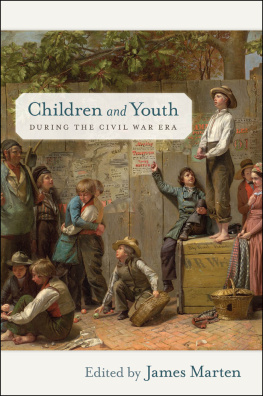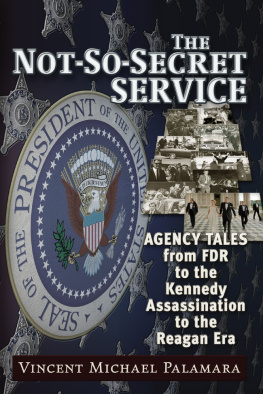
Allan Folsom
The Machiavelli Covenant
Copyright 2006 by Allan Folsom
WASHINGTON, D.C.
GEORGE WASHINGTON UNIVERSITY HOSPITAL,
SPECIAL CARE UNIT, 10:10 P.M.
The slow pound of Nicholas Marten's heart sounded like a drum buried somewhere inside him. His own breath, as he inhaled and exhaled, resonated as if it were a movie sound track. So did the sound of Caroline's labored breathing as she lay on the bed next to him.
For what seemed the tenth time in half that many minutes he looked at her. Her eyes were closed, as they had been, her hand resting gently in his. For all the life in it, it might as well have been a glove. Nothing more.
How long had he been in Washington? Two days? Three? Flown there from his home in Manchester, England, almost immediately after Caroline's call asking him to come. He'd known the minute he heard her voice something was terribly wrong. It had been filled with dread and fear and helplessness, and then she'd told him what it was: She had a very aggressive, untreatable staph infection and was expected to live only a few days more.
For all the horror and shock of it, there had been something more in her voice. Anger. Something had been done to her, she told him, suddenly whispering as if she were afraid someone would overhear. No matter what the doctors said or would say, she was certain that the infection killing her had been caused by bacteria that had deliberately been given to her. It had been then, judging from sounds in the background, that someone had come into the room. Abruptly she'd finished with an urgent plea for him to come to Washington, then hung up.
He hadn't known what to think. All he knew was that she was terribly frightened and that her situation was made all the worse by the very recent deaths of her husband and twelve-year-old son in the crash of a private plane off the coast of California. Considering the physical and emotional toll the combination of these tragic things would have had on her, and with no other information, Marten found it impossible to know if there was any basis at all for her suspicion. Still, the reality was that she was desperately ill and wanted him to be with her. And from everything he'd heard in her voice he knew he'd better get there as quickly as he could.
And he had; within the day flying from Manchester in the north of England to London and then on to Washington, D.C., taking a taxi from Dulles International directly to the hospital, and later getting a room at a hotel nearby. That Caroline knew who he really was and the risk she dared subject him to by asking him to come back into the United States had not been brought up. It wasn't necessary. She would never have asked if something wasn't terribly wrong.
So he had come hurriedly back to the country he had fled four years earlier in fear for his life and that of his sister. Come back-after so many years and the differing paths their lives had taken-because Caroline had been and was still the one true love of his life. He loved her more deeply than any woman he had ever known and in a way that was impossible for him to describe. He knew too that even though she was happily married and had been for a long time, in some unspoken, even profound way, she felt the same about him.
Marten looked up sharply as the room door was suddenly flung open. A heavyset nurse entered followed by two men in dark suits. The first was broad-shouldered, in his early forties, with dark curly hair. "You'll have to leave, sir, please," he said respectfully.
"The president is coming," the nurse said curtly, her manner abrupt and authoritative, as if she had suddenly become commander of the suits. A member of the Secret Service.
At the same instant Marten felt Caroline's hand tighten around his. He looked down and saw her eyes were open. They were wide and clear, and looked into his the way they had that first day they met, when they were both sixteen and in high school.
"I love you," she whispered.
"I love you too," he whispered back.
She looked at him for a half second more, then closed her eyes, and her hand relaxed.
"Please, sir, you have to leave, now," the first suit said. At that same moment a tall, slim, silver-haired man in a dark blue suit stepped through the doorway. There was no question who he was-John Henry Harris, president of the United States.
Marten looked at him directly. "Please," he said softly, "give me a moment alone with her She's just"-the word caught in his throat-"died."
The men's gaze held for the briefest moment, "Of course," the president said, his words hushed and reverent. Then, motioning to his Secret Service protectors, he turned and left the room.
Thirty minutes later, head down against the world, barely aware of the direction he was going, Nicholas Marten walked the all but deserted Sunday-night streets of the city.
He tried not to think of Caroline. Tried not to acknowledge the pain that told him she was no more. Tried not to think that it had been little more than three weeks since she had lost both her husband and son. Tried to put out of his mind the idea that she might have been intentionally given something that caused her fatal infection.
"Something has been done to me." Her voice suddenly echoed inside him as if she had just spoken. It resonated with the same fear and vulnerability and anger it had had when she had first called him in England.
"Something has been done to me." Caroline's words came again. As if she were still trying to reach him, trying to make him believe without doubt that she had not been merely ill, but murdered.
What that "something" was, or at least what she thought it was and how it had begun, she'd told him during the first of the only two lucid moments she'd had since he arrived.
It had happened following the twin funerals of her husband, Mike Parsons, a well-respected forty-two-year-old congressman from California in his second term in office, and their son, Charlie. Certain she was strong enough to see it all through, she had invited numerous friends to their home to join her in a celebration of their lives; but the shock of what had happened, coupled with the almost unbearable strain of the funerals and the crush of well-meaning people, had overwhelmed her, and she'd broken down, retreating in tears and near-hysteria to lock herself in her bedroom, screaming for people to go away and refusing even to answer the door.
Congressional chaplain and pastor of their church, Reverend Rufus Beck, had been among the mourners and immediately sent for Caroline's personal physician, Lorraine Stephenson. Dr. Stephenson had come quickly and with the pastor's help convinced Caroline to open the bedroom door. Within minutes she had injected her, as Caroline said, "with a sedative of some kind." When she woke up she was in a room in a private clinic where Stephenson had prescribed several days' rest and where "I never felt the same again."
Marten turned down one darkened street and then another, replaying the hours he had spent with her in the hospital. With the exception of the other instance when Caroline had been awake and talked to him, she had simply slept, and he had stayed by her side keeping vigil. Throughout those long hours health care personnel monitoring her condition had come and gone and there had been brief visits by friends during which Marten simply introduced himself and then quietly left the room.
There had been two other visitors as well, the people who had been immediately involved when Caroline had broken down at home. The first had been an early-morning call by the woman who had given her the "sedative" and prescribed her stay in the clinic, her personal physician, Dr. Lorraine Stephenson: a tall, handsome woman in her mid-fifties. Stephenson had exchanged a brief pleasantry with him, then read Caroline's chart, listened to her heart and lungs through a stethoscope, and left.
Next page






